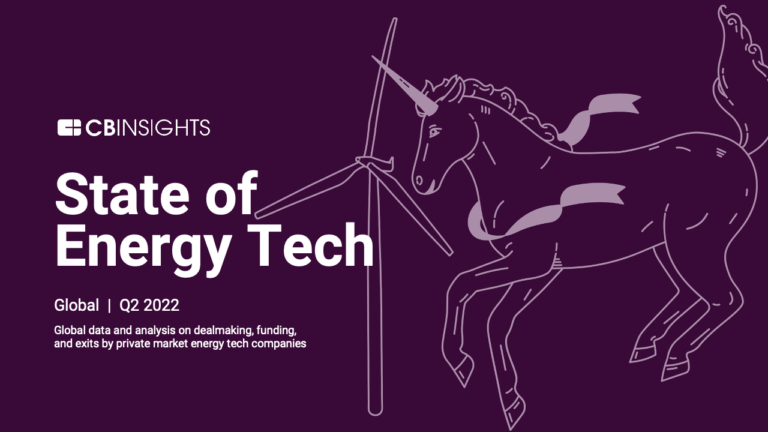
Arcadia
Founded Year
2014Stage
Line of Credit | AliveTotal Raised
$649.91MLast Raised
$30M | 1 yr agoMosaic Score The Mosaic Score is an algorithm that measures the overall financial health and market potential of private companies.
-37 points in the past 30 days
About Arcadia
Arcadia provides utility data and energy solutions within the clean energy sector. They offer a utility data platform, analytics, and expertise to support businesses in managing their energy lifecycle, including utility bill management, energy procurement, and sustainability reporting. Arcadia serves enterprise organizations and energy innovators looking to optimize their energy use. Arcadia was formerly known as Arcadia Power. It was founded in 2014 and is based in Englewood, Colorado.
Loading...
Arcadia's Product Videos


ESPs containing Arcadia
The ESP matrix leverages data and analyst insight to identify and rank leading companies in a given technology landscape.
The energy management & optimization platforms market aims to reduce energy consumption and improve operational efficiency for businesses. This market encompasses a range of activities, including energy monitoring, data analytics, demand response, decarbonization, energy efficiency measures, and renewable energy integration. Energy management and optimization solutions help businesses and institut…
Arcadia named as Highflier among 14 other companies, including Schneider Electric, Octopus Energy, and Emerson.
Arcadia's Products & Differentiators
Arc platform
The Arc platform combines easy-to-use data and APIs under one roof to allow any company to act on its environmental impact and build the next generation of energy products and climate tech solutions.
Loading...
Research containing Arcadia
Get data-driven expert analysis from the CB Insights Intelligence Unit.
CB Insights Intelligence Analysts have mentioned Arcadia in 1 CB Insights research brief, most recently on Jul 27, 2022.

Jul 27, 2022 report
State of Energy Tech Q2’22 ReportExpert Collections containing Arcadia
Expert Collections are analyst-curated lists that highlight the companies you need to know in the most important technology spaces.
Arcadia is included in 4 Expert Collections, including Unicorns- Billion Dollar Startups.
Unicorns- Billion Dollar Startups
1,262 items
Grid and Utility
2,149 items
Companies that are developing and implementing new technologies to optimize the grid and utility sector. This includes, but is not limited to, distributed energy resources, infrastructure security, utility asset management, grid inspection, energy efficiency, grid storage, etc.
Real Estate Tech
105 items
Renewable Energy
4,803 items
Arcadia Patents
Arcadia has filed 10 patents.
The 3 most popular patent topics include:
- energy economics
- energy conservation
- energy policy

Application Date | Grant Date | Title | Related Topics | Status |
|---|---|---|---|---|
2/15/2023 | 4/2/2024 | Renewable energy, Energy conservation, Energy conversion, Energy economics, Energy policy | Grant |
Application Date | 2/15/2023 |
|---|---|
Grant Date | 4/2/2024 |
Title | |
Related Topics | Renewable energy, Energy conservation, Energy conversion, Energy economics, Energy policy |
Status | Grant |
Latest Arcadia News
Jun 23, 2025
AI innovation is accelerating at a pace unlike anything we have seen before. Ethan Mollick, a well-known Wharton professor and thought leader on AI, put it best when he said that today's AI tools are the worst they will ever be . Meaning, while we've already seen AI tools advance significantly, AI is only getting better, faster and smarter, and we need to get ready for the AI capabilities of the future. In today's AI era, organizations are participating in a massive delegation exercise, trying to figure out which tasks can be fully delegated to AI and which tasks require human oversight. However, leaders and AI decision-makers must keep in mind what AI's future potential could look like when strategizing today. New research conducted by Bessemer Venture Partners, Amazon Web Services and Bain & Company shows that over half of healthcare organizations are seeing material ROI in 12 months of AI implementation. For even more healthcare organizations to maximize ROI, leaders must recognize that they should not simply replicate their existing workflows with AI. AI implementation must instead be a redefining process where leaders take a daring and holistic approach to match the pace of AI innovation. While some solutions may not be possible today, they may be in the future. Through this exercise, teams will identify where human intervention is necessary and establish appropriate guardrails and AI governance mechanisms. Organizations that take this approach will stay ahead of the AI innovation curve, enabling teams to build more effective workflows that allow employees to focus on high-value work that drives business growth. Enable employees to activate the AI strategy. AI is most powerful when organizations use it to redefine operations. Big organizational shifts are driven by small, incremental changes. Leaders should enable teams to think creatively about AI implementation and encourage employees to envision what a completely automated workflow could look like. If teams do not imagine what is possible without restrictions, they are unintentionally putting up barriers and stifling innovation. By coaching employees to imagine a blank canvas and design a fully automated workflow, organizations can uncover new opportunities for AI. For example, at my organization, Arcadia, an employee noticed colleagues asking similar questions across internal Slack channels, recognizing an opportunity to use AI to automate a process where humans were not needed. He created an AI tool that connects to multiple internal sources and provides automated answers to employees' questions in seconds, reducing the amount of time employees spend finding answers for each other and enabling them to remain focused on higher-value tasks. These types of low-risk, high-reward tools deliver an efficiency improvement of approximately nine orders of magnitude and underscore how AI-powered innovation is possible when leaders encourage teams to think outside the box. Integrate AI systems to maximize effectiveness. Once teams understand how fully automated workflows might operate, they can then start building the foundational requirements for optimization. A great example of an organization that is leaning into AI implementation is Kaiser Permanente, which recently published a case study on their AI-powered scribe rollout—including lessons learned. Among those takeaways, Kaiser surprisingly changed vendors between the initial pilot and final rollout of their AI scribe because they wanted the tool to be better integrated into their electronic health record system. As I have written about before, when AI is integrated into existing workflows, the outcomes are always better. At Kaiser, providers liked the initial AI scribe, but agile leaders pivoted quickly because they wanted the tool to work even better. They saw the full potential of this technology and decided to drive more meaningful impact for their business. To build the foundation for automated workflows, connecting tools that use various types of AI is key. In the Kaiser example, the AI scribe tool they ultimately chose uses agentic AI, which autonomously makes decisions and solves multi-step problems without human assistance, to transcribe a patient visit. Generative AI, which requires more human intervention as it solves less complex problems while relying on prompts to produce specific outputs, is layered in to produce a summary from the transcript. By stitching together tools that leverage different types of AI, teams are able to lay the foundation for the fully automated workflows of the future, while also helping eliminate administrative, time-consuming tasks and enabling employees to focus on the highest value work. Understand where human intervention is critical. For now, leveraging a more holistic AI implementation strategy does not mean that humans are fully out of the loop. I intentionally write “for now” because it's difficult to predict how dramatically AI could transform our world. But today, this means that organizations have better insight into instances where a human touchpoint may need to be more heavy-handed. Many still look at integrating AI from an extreme perspective—either humans do everything or machines do everything. But I view the degree of human intervention as a spectrum. In healthcare, primary care delivery is an area where doctors should not be out of the loop (for now), but AI can help automate administrative tasks, like developing patient summaries. However, with many large pharmacy chains struggling financially , an example of an area primed for automation is pharmacy workflows , where automated prescription drug dispensing can help reduce the potential risk of error. When organizations have a deeper understanding of where human intervention is needed within workflows, they can establish more effective AI systems. Leaders and AI decision-makers must take teams out of their comfort zone and encourage them to think differently about AI implementation to match the unstoppable pace of AI innovation. Real transformation will take place when organizations implement AI tools holistically and stitch them into a cohesive system. This way of thinking will empower companies to make more strategic AI investments and harness the power of AI, driving more efficiency and growth for their business. Forbes Technology Council is an invitation-only community for world-class CIOs, CTOs and technology executives. Do I qualify?
Arcadia Frequently Asked Questions (FAQ)
When was Arcadia founded?
Arcadia was founded in 2014.
Where is Arcadia's headquarters?
Arcadia's headquarters is located at 5600 South Quebec Street, Englewood.
What is Arcadia's latest funding round?
Arcadia's latest funding round is Line of Credit.
How much did Arcadia raise?
Arcadia raised a total of $649.91M.
Who are the investors of Arcadia?
Investors of Arcadia include BoxGroup, Energy Impact Partners, Triangle Peak Partners, G2 Venture Partners, Camber Creek and 34 more.
Who are Arcadia's competitors?
Competitors of Arcadia include UtilityAPI and 3 more.
What products does Arcadia offer?
Arcadia's products include Arc platform and 4 more.
Who are Arcadia's customers?
Customers of Arcadia include Ford and Aspen Power Partners.
Loading...
Compare Arcadia to Competitors

Innovaccer is a healthcare technology company that provides a platform for data activation and analytics in value-based care. The platform integrates and analyzes healthcare data for clinical, financial, operational, and experiential outcomes. Innovaccer's solutions serve providers, payers, the public sector, and life sciences. It was founded in 2014 and is based in San Francisco, California.
trUStr focuses on improving the Health Safety Environment (HSE) through a rewards-based system, operating in the health and safety sector. The company offers a text messaging service that aims to make teams healthier, more resilient, and more productive at work. The company primarily serves the business sector, with a particular emphasis on critical business operations. It was founded in 2015 and is based in Burlington, Vermont.
Epic is a company that focuses on the development and management of mobile applications for events, operating within the tech industry. The company's main services include creating mobile apps that enhance event experiences by enabling attendees to see other participants, chat, schedule meetings, take notes, and network effectively. Additionally, these apps provide event organizers with new value, sponsorship opportunities, and revenue streams, all manageable in real-time. It is based in London, England.
Healthec is a healthcare provider. It is based in Mexico.

Quality Reviews provides digital health communication and patient engagement solutions within the healthcare sector. The company offers a platform for real-time patient feedback and engagement, focusing on patient and provider interactions. Quality Reviews serves healthcare providers, payers, and organizations aimed at improving patient satisfaction and care quality. It was founded in 2012 and is based in New York, New York.

SeamlessMD is a digital health company focused on patient engagement and remote monitoring in the healthcare industry. The company offers a platform that includes digital care plans, automated reminders, education, and symptom monitoring to assist providers in monitoring patient outcomes. SeamlessMD's solutions are applicable in various healthcare sectors, including surgery, oncology, chronic care, and maternity care. It was founded in 2012 and is based in Toronto, Ontario.
Loading...
